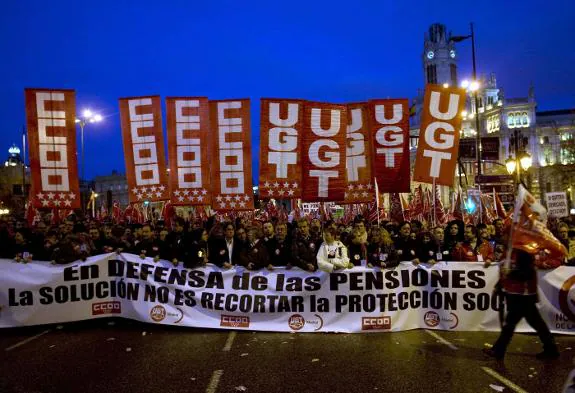14 September 1964: Birth of what is now Spain's largest trade union
The CC.OO had transformed from a clandestine and spontaneous movement into an organised group of commissions and it largely coordinated the entire workers' movement in Spain despite the Franco regime
Debbie Bartlett
Viernes, 14 de septiembre 2018, 18:35
When the Franco dictatorship began after the Spanish Civil War in 1939, trade unions were banned, their assets were confiscated and militants were jailed, executed or repressed. In place of the unions, the regime created what were known as 'Sindicatos Verticales', or 'vertical unions', which all business owners and workers were obliged to join. Salaries were decided by the regime and announced by decree, which meant there was no such thing as collective negotiation. Under these conditions, the union movement in Spain practically disappeared from the scene altogether.
However, by 1947 there was growing unrest in the country and in that year workers at a metal factory in Vizcaya bravely went on strike, the first to take place during the dictatorship. It marked the start of a new era, because it was organised in spite of repression from the authorities, and it resulted in a new workers' movement which then continued to grow.
Another historic year in the incipient union movement was 1951, when there were strikes and demonstrations in Barcelona, Madrid and the Basque Country in the early part of the year. These were mainly spontaneous, although the clandestine unions which had grown up since 1947 did support and take part in them. An important role was also played by the Spanish Communist Party PCE, and Roman Catholic workers' groups.
In many places, the workers began to elect the more vociferous and active among them to form commissions to try to negotiate better conditions with the authorities. These were to be the origins of the Workers' Commissions, or Comisiones Obreras, which some years later developed into the CC.OO union.
With increasing support for the demand for better conditions, these commissions had an effect and in 1958 the first Law of Collective Negotiation came into force. It was very restrictive, but it encouraged the expansion of the new union movement and gave workers the confidence to hold more strikes and demonstrations.
This was taking place in a context of socio-economic change in Spain in the late 1950s, as industrialisation accelerated and there was a significant growth in the Spanish working class. In 1962 miners and industrial workers began to hold strikes all over the country.
By 1964, the CC.OO had transformed from a clandestine and spontaneous movement into an organised group of commissions and it largely coordinated the entire workers' movement in Spain despite the Franco regime. It extended almost simultaneously in Madrid, with the Comisión Obrera Metal to represent metal workers, in Barcelona with the Comisión Obrera Central and in parts of the Basque Country.
These days, what began as an underground anti-Franco movement designed to defend workers' rights has become Spain's largest trade union, with over one million members and more than 122,000 delegates who are democratically elected by employees in companies with more than six workers.
